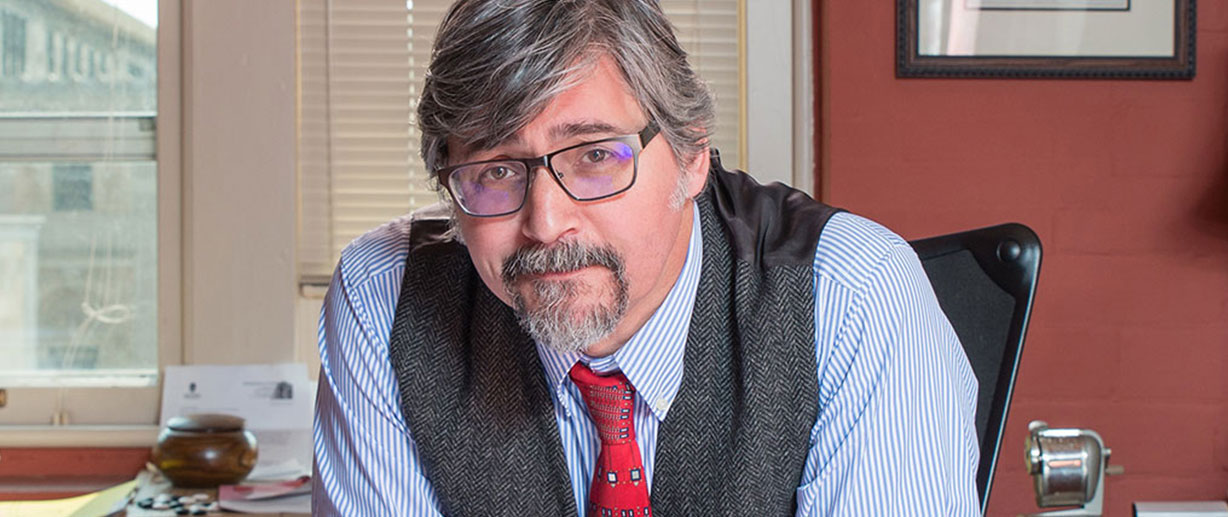SPARTANBURG, S.C. – Dr. Paul Robbins, dean of the Nelson Institute for Environmental Studies at the University of Wisconsin-Madison, will deliver Wofford College’s Phi Beta Kappa lecture at 11 a.m. Thursday, Feb. 27, in Leonard Auditorium in Main Building. The event is free and open to the public.
Robbins, a researcher and educator specializing in human interactions with nature and the politics of natural resource management, will speak on “Coffee, Frogs and Workers: Conservation in the Anthropocene.”
Hub City Bookshop will host a reading by Robbins and a reception at 6 p.m. Feb. 27; the bookshop is located at 186 W. Main St. in downtown Spartanburg.
The Nelson Institute for Environmental Studies is a world leader in addressing rapid global environmental change. Robbins is spearheading several new initiatives in educational innovation, including the establishment of a professional master’s degree in environmental conservation. He also oversees a rapidly growing undergraduate environmental studies program.
Robbins has taught topics ranging from environmental studies and natural resource policy to social theory. His research addresses questions spanning conservation conflicts, urban ecology, and environment and health interactions. He has done extensive fieldwork in rural India, where he has focused his work on the politics surrounding forestry and wildlife conservation in Rajasthan, India, as well as recent research examining the wealth of biodiversity (frogs, birds and mammals) in commercial coffee and rubber plantations throughout South India.
Robbins also has led national studies of consumer chemical risk behaviors in the United States, including research on the abiding passion of Americans for their lawns and mosquito management policies in the Southwest. In addition, he has studied the complexities of elk management policy on the settled fringes of Yellowstone Park. He authored the foundational textbook “Political Ecology: A Critical Introduction” and numerous research articles in publications that address conservation science, social science and the humanities. His award-winning book “Lawn People: How Grasses, Weeds, and Chemicals Make Us Who We Are” is widely recognized as one of the most accessible books on the environmental politics of daily life.
Robbins previously led the School of Geography and Development at the University of Arizona, which he helped establish and served for two years as director. A UW-Madison alumnus with a bachelor’s degree in anthropology, Robbins also holds a master’s degree and a doctorate in geography, both from Clark University.
Wofford College received its chapter of Phi Beta Kappa at the 1940 triennial meeting of the United Chapters of PBK. For more information, go to wofford.edu/about/fast-facts/phi-beta-kappa.
